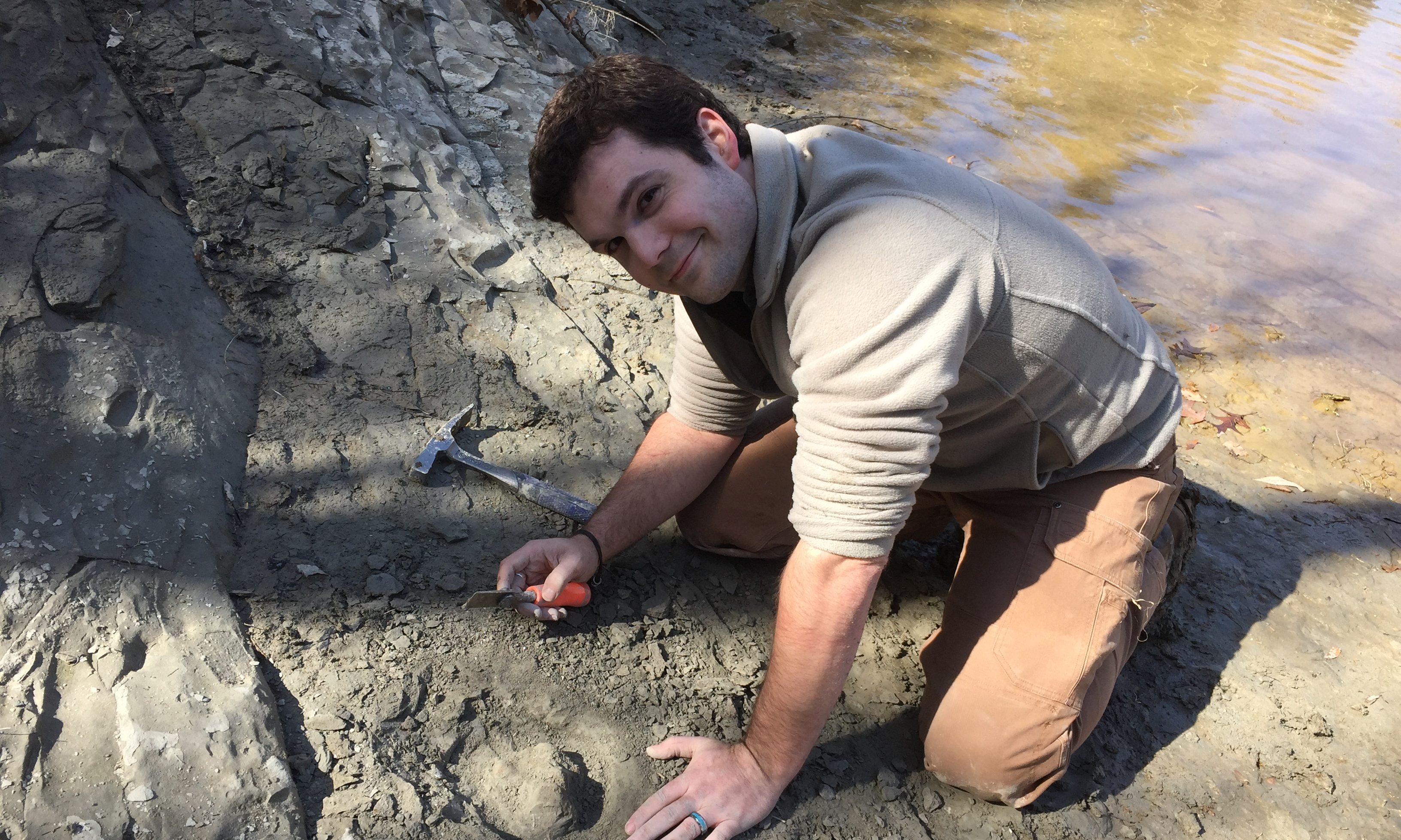Drew Gentry has spent years looking back so that we’ll know what’s ahead. The doctoral student and instructor at the University of Alabama in Birmingham was recently awarded the 2019 Newton/Winefordner Scholarship to continue his research into the evolution of sea turtles.
“The only way that it becomes possible to develop estimates of the future impacts the continued warming will have on the modern marine turtle population is to look back at the historical record, of the paleontological record of how marine turtles have evolved in response to climate change in the past,” Gentry told APR on Tuesday.
Gentry began studying Alabama’s large collection of sea turtle fossils in 2013. The paleobiologist who’ll defend his doctoral thesis this semester, said he did so because that research hadn’t been done in great detail before, at least since the last scientific publication done in the 1950s.
“Alabama is one of the best places in the world to find fossil sea turtles,” Gentry said. “…There’s been quite a bit of material collected since the 1950s around Alabama.”
Those fossils have been collected since about the 1940s and stored in museums across the southeast, Gentry said, so he set about working to what those species were and how they relate to modern sea turtles.
In 2018 Gentry and colleagues identified a new species of sea turtles. The extinct Peritresius martini lived between 70 million and 73 million years ago, when southern Alabama was under a shallow, inland ocean, according to Gentry’s study, published in PLOS One last year.
The new species was named after the retired USDA soil scientist George Martin, who unearthed the fossil in Lowndes County. The newly discovered species has features that resemble modern hard-shell sea turtles and was about the same size as the modern green sea turtle found in the gulf.
Gentry has since discovered another new species of sea turtle previously unknown to the science community, but his report on that find hasn’t yet been published. Gentry said that should happen soon.
During his work Gentry drafted a sort of evolutionary tree of sea turtles that showed the diversity and distribution of the different species throughout history.
Once complete, he began wondering whether that information could be matched with other known facts, like periods of warming ocean temperatures, to see what impact that could have had on sea turtle evolution.
Using microscopic shells of organisms locked into fossils scientists can estimate with great accuracy what sea temperatures were when the tiny animals were alive. Using that data, along with his sea turtle fossils, Gentry can estimate the ocean’s temperatures at the time each species in those fossils were alive.
Gentry discovered that during periods of extreme, sudden warmth the number of green turtle species dropped significantly. He saw records of those declines during the Cretaceous Thermal Maximum period, which occurred approximately 90 million years ago when carbon dioxide levels peaked and there may have been no ice at the poles.
Scientists still debate what caused the increases in greenhouse gases including carbon dioxide during that period 90 million years ago, but it’s often compared to today’s global warming, which scientists overwhelmingly believe is caused by human use of fossil fuels.
Gentry pointed to work being done by UAB professor Thane Wibbles, who is studying the impacts of the warming climate on sea turtles, specifically the impact of warming seas on the sex determination of turtles. Research is showing that warming oceans are resulting in births of more female and fewer male sea turtles.
“That’s a trait that’s shared by all species of modern sea turtles, at least we think it is,” Gentry said. “Which means it was likely present in their common ancestors.”
The warming oceans that seem to be affecting the sex of sea turtles today could have been one factor that impacted the turtles that Gentry is studying. He also thinks that quick spikes in sea temperatures, which lowers the oxygen content in the water, negatively impacts habitats for sea turtles.
Using these two scholarships and some other funding opportunities he’s applied for Gentry hopes to move beyond the Cretaceous period and study what happened to sea life within the last 65 million years.
Perhaps there are more secrets hidden away in the fossils waiting to be discovered.


















































